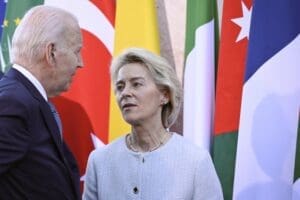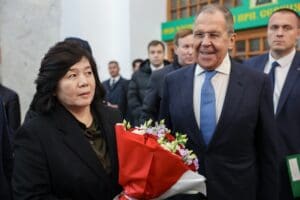The EU-Turkey Refugee Deal: Will It Be Enough?
Last week’s negotiations between the EU and the Turkish government were yet another attempt to deal with the flow of refugees into Europe. It may be overly optimistic to believe the deal will be implemented without facing major obstacles, owing to intra-European disagreements over the issue. Today, as European leaders present their rebuttal package to Turkey’s March 7th proposal, any agreement reached runs the risk of serving as only a half-measure in addressing the monumental challenge that is the Syrian refugee crisis.
The most controversial part of the proposal has been the idea of a one-for-one exchange of “irregular migrants” already in Europe for Syrian asylum seekers traveling to the EU through official intake procedures. The goal of this model is to strike at the heart of Turkey and Greece’s migrant smuggler networks. By now, human smuggling has become a multi-billion dollar industry which continues to persist despite Turkish police crackdowns and a specific NATO deployment to combat it. In September 2015, an agreement was reached wherein EU members agreed to relocate 160,000 refugees arriving in Greece or Italy over a two year period of time. As of March 1, 2016 fewer than 700 relocations had actually taken place. The proposal is also of questionable legality under EU and international law, both of which prohibit the collective expulsion of would-be asylum seekers.
The idea of intakes of any number of refugees continues to pit neighbor against neighbor in an EU struggling with its own identity. Austria, Hungary, and France have objected to the deal, which is due to be finalized. German Chancellor Angela Merkel, the architect of the idea of a Joint Action Plan on Refugees (JAP) has also continually come under fire domestically for championing the agreement. In 3 state parliamentary elections on Sunday, Merkel’s party faced major gains made by the young Alternative for Germany Party (AFD), which is synonymous with the far right ideologies of populism and nationalism. The losses have widely been considered a referendum on Merkel’s refugee policies. With the United Kingdom focused on the June 2016 Brexit vote, and France continuing to be bogged down by its own economic plight, Germany, and Merkel, has remained the face of the EU’s strategy on migration. A weakening Merkel at home does not bode well for the continuation of her ability to bring fellow Bloc members into line.
This idea of a one-for-one exchange comes as a supplement to adaptations of previous JAP main concepts. The goal of this policy is to promote legal pathways to Europe and close the door for “irregular” migration between Turkey and Greece. Turkey will establish control centers within Greece where it will receive and process those that do make it across the Aegean and transport them back to Turkey. Funding for this project would come from an additional sum of up to €3 billion requested in the new plan. Previously, the EU struggled to decide how the funds will be assembled for the initially promised €3 billion to Turkey.
A second piece of the agreement bumps implementation of visa-free travel between Turkey and Schengen countries up to June from September; the timeline for the opening of accession chapters have likewise been accelerated. Visa-liberalization is, in and of itself, a contentious issue. Turkey is the only EU candidate country that does not have visa-free travel with Schengen countries. For the EU, some of the roadblocks to visa-free travel include Turkey’s lack of biometric passports and concerns that more open borders between the two countries would make it easier for migrants to transit through Turkey to Europe. The proposal for the immediate opening of five additional chapters of Turkey’s long stalled EU accession process also faces roadblocks. Long an opponent of Turkish accession, Cyprus has already indicated that it will continue to block the opening of any new chapters.
In the end, despite six months of negotiations, little tangible movement has been made for the implementation of JAP. The ambiguities of this newest framework for the agreement leave much room for skepticism about whether or not any of the proposals will get off the ground. As the EU comes together in Brussels for final approval of the agreement, it will have to grapple with its own internal divisions as well as lobbying from various international organizations that have criticized the proposed one-for-one exchange. EU approval of a rebuttal the deal on Thursday does not mean that any final deal will automatically translate into substantial changes or concrete implementation of any of these points. The EU will have to prove that it is committed to giving Turkey the assistance necessary to halt the flow of refugees to Greece and also prove its commitment to taking in “regular” migrants in a political environment increasingly polarized by the continent’s radical right. The most immediate gains that stand to be made will be enjoyed by Turkey, which has already begun to receive, in part, EU funds promised early in the JAP. With the June deadline proposed in the agreement, visa-liberalization will also possibly be an early indicator of the durability of the JAP.
Ultimately, a true resolution to the refugee crisis for Europe will not be found until there is a dramatic change in European policy and perspectives about the reality of the situation. This agreement with Turkey, even if it becomes fully actualized, can only be a stop gap. Eventually, the EU must accept the inevitability of its future as a home to many of the refugees fleeing to its shores.
























